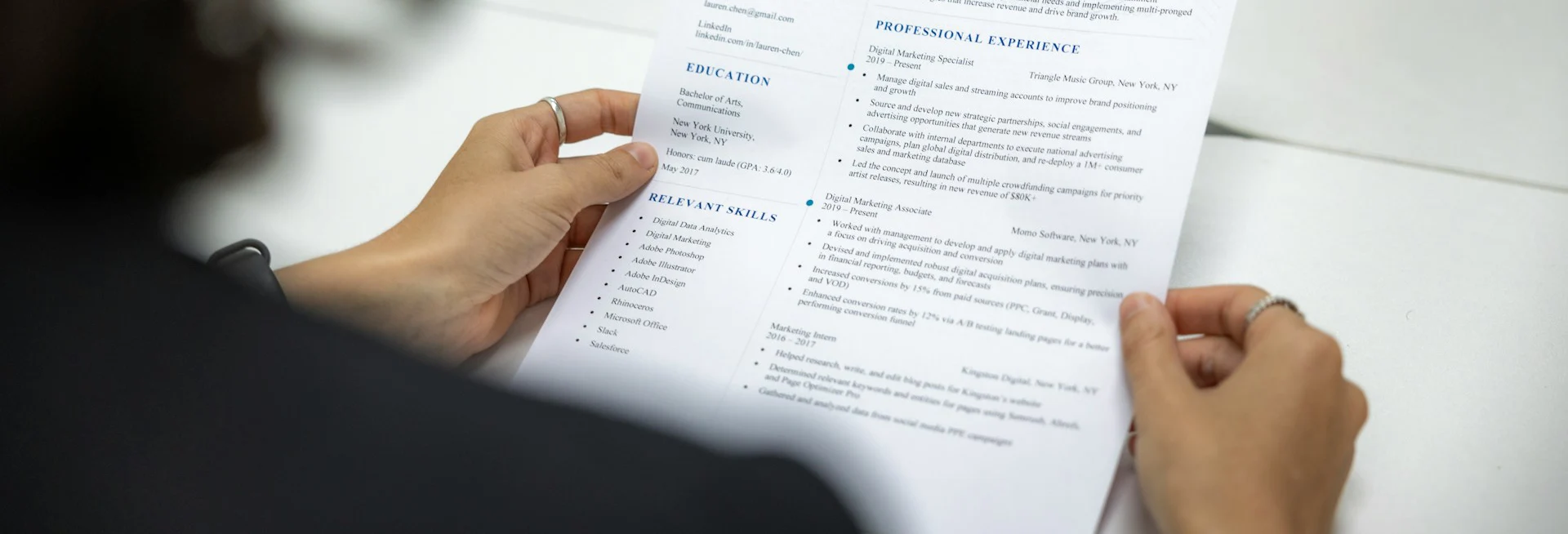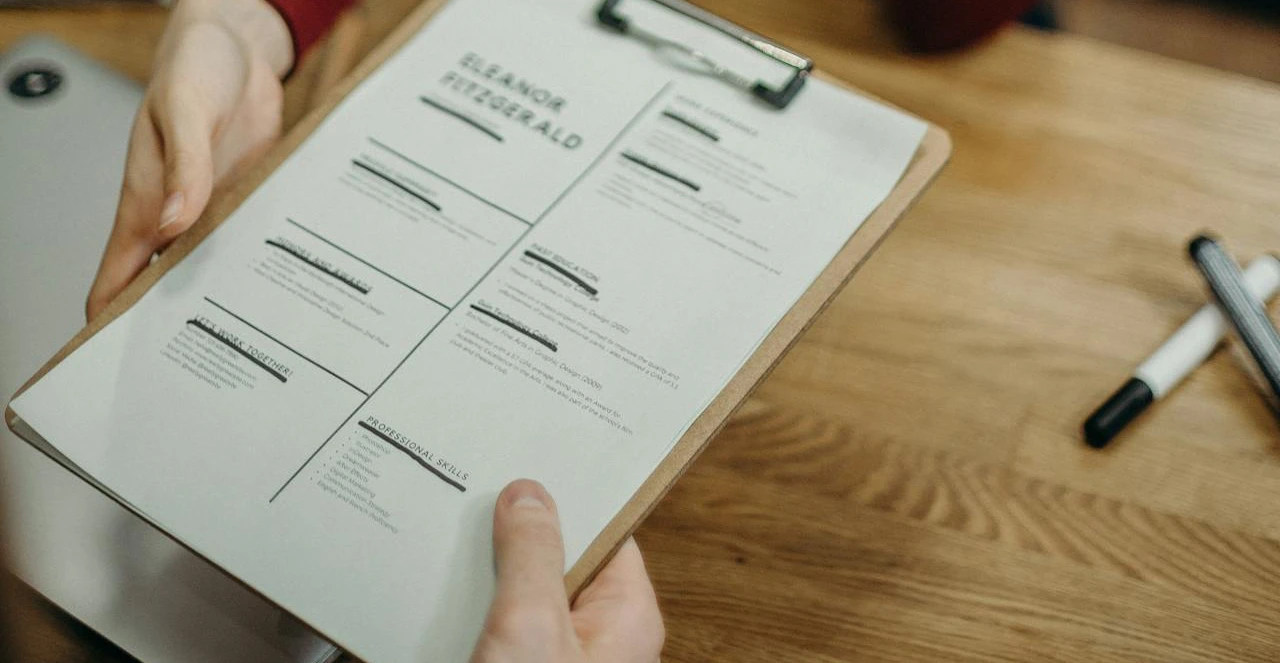Biggest weakness interview question – how to answer
Unsure how to reply to the biggest weakness interview question without appearing artificial or rehearsed? You are not alone. Check out the guide below to understand all about this question: how to come up with a meaningful response and offer genuine, role-specific examples of self-awareness and growth. So, don’t rely on generic and mugged-up answers. Here’s what you need to know.

What is your biggest weakness – why do recruiters ask this?
Let’s get this straight: “What is your biggest weakness?” This question isn’t designed to expose you. It’s not a push to confess your flaws and insult you. See it as a diagnostic tool that recruiters use to assess how you reflect, adapt, and grow. Moreover, don’t just expect that the interviewer will ask you just one weakness; they can ask you about multiple weaknesses. So, be prepared.
When a recruiter is hiring you, they will not just assess your skills. You will be expected to work with a team, where there will be people from different backgrounds. So, how you address your mistakes or how you manage your weaknesses tells a lot about your character.
Here’s what your answer says about you:
- Self-awareness – Can you evaluate your own performance objectively? Are you aware of patterns that may get in your way?
- Accountability – Do you take ownership of your mistakes or the challenges that come your way, or do you just avoid or sugar-coat?
- Role alignment – Is the shortcoming you highlighted relevant to how you perform in this specific job?
While the fresher interviews may also have this question, when it comes to the mid- or senior level, the importance rises. When you are experienced, you are required to coach and guide others, establish the team’s tone, and deal with uncertainty. If you can’t specify even one area where you want to improve, it’s generally interpreted as a red flag rather than a strength. You are not perfect, and the interviewer knows that very well. So, don’t sugarcoat.
How to answer to what is your biggest weakness?
The fun fact? There’s no right answer for this question. Every individual will come up with a personalised answer, and that’s why the interviewers ask this question. What matters most is whether your response shows self-awareness, relevance, and personal growth. Your answer won’t have to be perfect. You must be honest. That’s all that matters.
The Right Answer Depends On:
Role
The correct answer depends on your role. The weaknesses of a data analyst will differ from those of a sales representative. That’s pretty much obvious. Yes, if your weakness does not surround your job, it can be the same. Suppose both the guys have weak communication skills; that can be a common string. But when it comes to the weakness that’s relevant to the role, they will be different.
Your level
Entry-level candidates may lack experience. So, they mostly talk about personal weaknesses. However, mid-level candidates may struggle with delegating. Senior folks? Blind spots in leadership styles, and so on.
Where Candidates Go Wrong:
Most candidates, especially freshers, come up with mugged-up answers. If the interviewer asks you, “What’s your biggest weakness?” don’t ever say the following:
“I’m a perfectionist.”
Overused. Believe us, the recruiters hear this from every other candidate. Unless you personally believe it’s your weakness, and you can explain why and how it affects your work, don’t say this.
“I work too hard.”
How is it a big weakness? It sounds like you are just gaming the question. Don’t try this generic answer.
“I don’t have any weaknesses.”
Well, that’s too much confidence. You are not perfect; nobody is, and this answer highlights that you are blind to judging your traits. It’s just a lack of reflection, and nobody buys it.
Role-killer answers
Many candidates screw up with answers that directly conflict with their roles and responsibilities. Suppose your interview is for a content writer’s role, and you are saying your English is too weak, and you are working on it. Does it make sense? No, right? So, highlight the weaknesses that won’t directly impact your role.
What Makes a Great Answer?
What’s the best answer? Although there’s no best answer, we can tell you how to frame a good answer, more likely to leave a good impression. An intelligent answer will tick these four checkboxes:
Real, but not exclusionary
It should be a genuine opportunity for growth rather than a career-impacting fault.
Contextualised
Explain where it shows up in your work and how you become aware of it.
Reflective
Show that you understand why it mattered and how much it cost.
Growth-focused
Show specific actions you have taken to improve. It can be going for courses, routines, mentoring, etc.
The next time you come across this question, apply this approach:
- Weakness
Clearly mention your weakness.
- When did it show up in the past?
Mention when you spotted the weakness.
- What did it impact?
Reveal how the weakness influences your work.
- What did you do?
Mention the moves you took to counter your weaknesses and improve over time.
- Where are you now?
Say something about your progress. How well have you handled the weakness?
Weaknesses interview examples and types of answers
When asked about your major shortcoming, you should not say something scripted. Instead, base your answer on a real-world event, offer context, and demonstrate progress.
Let’s make it easier to understand. Below are different types of weaknesses, along with examples of how to express them effectively:
Delegation (common in leadership and mid-level jobs)
Answer:
“Earlier in my managerial career, I struggled to delegate. I would take on too many chores, believing I was being helpful. But it created bottlenecks. I now use different work delegation tools to assign and monitor ownership. Moreover, I prefer frequent check-ins over leaping into ‘fix’ issues. It’s helped my team become more confident, and we are moving quicker overall.”
Overcommitting (ideal for solid achievers or juniors learning to prioritise)
Answer:
“I used to say yes to everything. Bring new chores, new requests—I was okay with everything, even when I was overwhelmed. This attitude stemmed from a desire to prove myself. However, all I ended up with were delays or last-minute tasks. Now, I have learned to better anticipate my time, set up calendar concentration hours, and communicate timetables effectively. This has made my delivery much more consistent now.”
Asking for Help (Effective for high-functioning team members)
Answer:
“In the initial days of my career, I was always fairly independent and tried to solve things on my own. Actually I hesitated to ask for help. However, I have seen that soliciting feedback early on may save time and offer better results. That’s why now I consult coworkers when I hit blocks, especially on cross-functional projects. This has improved my communication skills and has helped me to complete tasks quickly rather than scratching my head over a problem.”
Giving feedback (common for leadership individuals)
Answer:
“I used to be hesitant to offer constructive comments because I was concerned about demotivating the individual. But I realised silence does not help individuals grow. That’s why constructive feedback is super important. Now I use a ‘feedforward’ strategy, concentrating on what can be improved and why it matters. As a result, my 1:1s have been far more effective.”
Lack of Formal Training (suitable for self-taught or career changers).
Answer:
“I do not have a formal CS degree. My background is in economics. Early in my development career, I lacked a theoretical basis. I solved this by using MIT’s open courseware and contributing to open-source projects for feedback. While I continue to study, I now have a much better understanding of the CS fundamentals.”
How to Create a Bank of Weaknesses to Use?
Instead of fumbling with answers before each interview, create a weakness library specific to your position, situation, and role. Here’s what you can do:
- Prepare a weakness based on one personal characteristic. It can be self-criticism, hesitancy to speak up, and so on.
- Prepare a weakness based on one skill-based area. It can be work delegation, presentation skills, and so on.
- Prepare a weakness answer based on one role transition issue.
This way, if they ask for three weaknesses, you are prepared to answer them properly.
Summary
Recruiters don’t hunt for perfection when they ask you, “What’s your biggest weakness?” They are looking for self-awareness. So, don’t try to pretend you have no weaknesses. Giving vague answers will put you in the wrong spot. This doesn’t mean you have to come up with scripted answers. What stands out is someone who can freely identify their obstacles, reflect on them, and demonstrate apparent development. That’s what indicates maturity, honesty, and a willingness to learn and adapt. So, stick to the approaches we mentioned and leave an impact in the interview.
Read More

Affiliate manager interview questions

Biggest weakness interview question & how to answer
